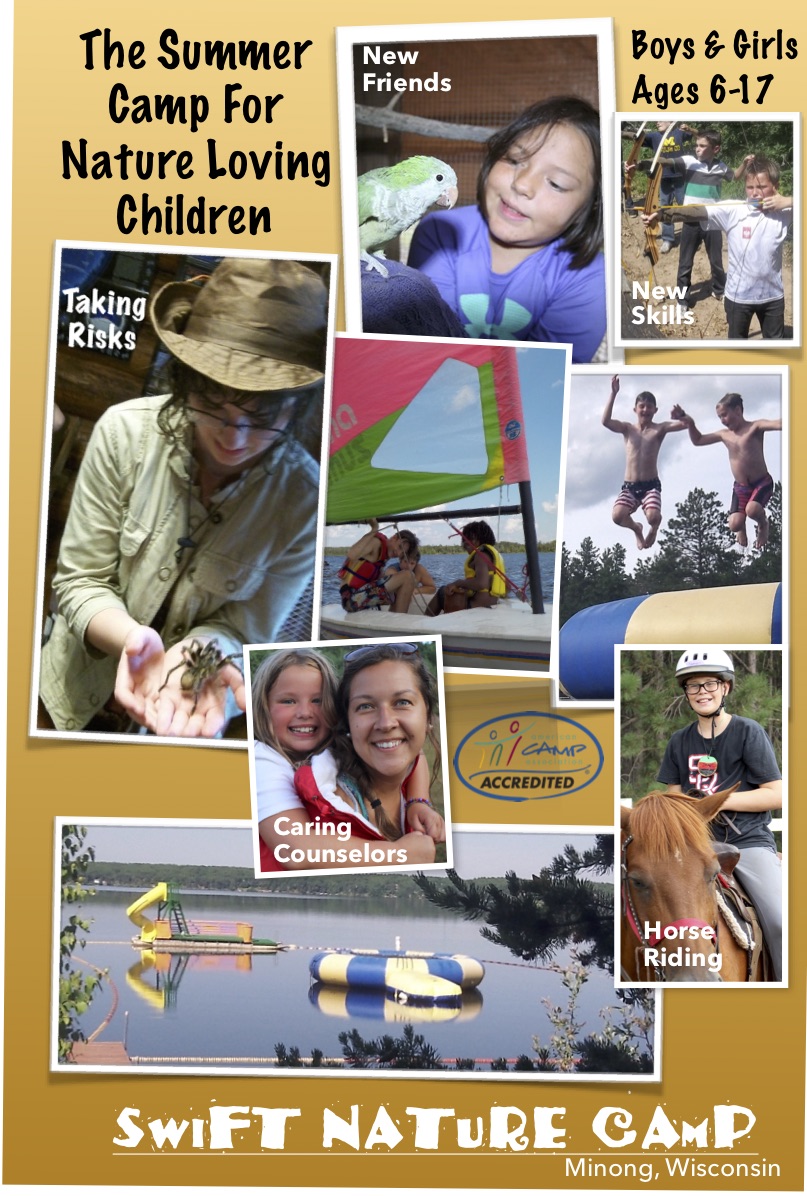permalink=”http://www.swiftnaturecamp.com/blog”>


permalink=”http://www.swiftnaturecamp.com/blog”>

Catching frogs is one of favorite things to do at this children’s summer camp. One of the best hunting spots is the lamp poles at night. You see the frogs come up from the pond at night looking for food and all the bugs hanging around the light will do just fine.
One might wonder are you eating all these favorite catches. Nope they gan spend on night up at the Nature Center Zoo where they hang with the other animals anc catches then its back to where they were caught at. Next summer, join us for some serious frog catching..
permalink=”http://www.swiftnaturecamp.com/blog”>

Swimming in open water is a new experience that's not to be feared, but embraced. Once you feel comfortable swimming in a lake, the world will open up to you and wherever you see water you will see a new adventure waiting. Swift Nature Camp has over 1500 acres of water right out your cabin front door.
At Swift Nature Camp we have a wonderful swimming area full of fun toys, not to mention Wally (the water trampoline) & Sally (the slide). "Free Swim" is one of the most anticipated times of the camp day, but "Instructional Swim" is there to help give you build the confidence for those free swims. You can even earn American Red Cross Swimming levels
permalink=”http://www.swiftnaturecamp.com/blog”>

So be sure to go to Google Earth and download the special program.
It’s cool to see camp from this view...Maybe this is what it is like being an eagle in the Northwoods of Wisconsin. So tune in to google earth and be you’ll be amazed.
permalink=”http://www.swiftnaturecamp.com/blog”>

click to see more photos
permalink=”http://www.swiftnaturecamp.com/blog”>




Do you enjoy Nature? Do you like to take pictures?
Now it’s your chance to make the call! The National Wildlife Federation needs your vote!
Their Magazine has selected the finalists for this Photo Contest. The theme is “Nature in My Neighborhood.” Now we need YOU to help choose the winner!
Vote for your favorite image today! The top vote-getter receives an official NWF field guide and, if not already a member, a free one-year membership to National Wildlife Federation. But we need to hear from you soon: Voting ends April 15!
Visit: Swift Nature Camp Website
permalink=”http://www.swiftnaturecamp.com/blog”>
After watching this I was so touched I had to put it here. I hope that some of our summer camp kids feel this good after coming to camp.









